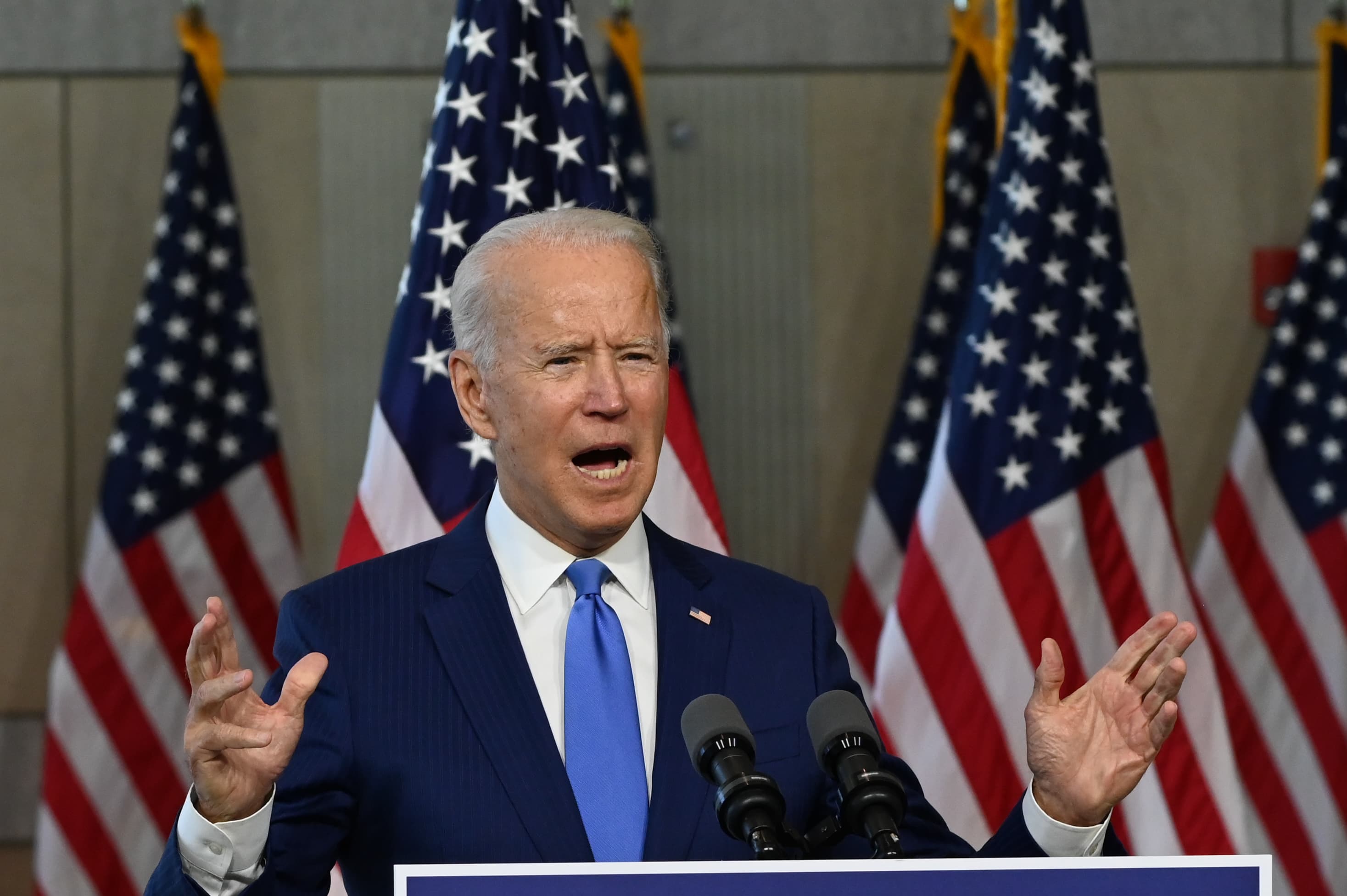
Joe Biden speaks at the National Constitution Center in Philadelphia on Sept. 20, 2020, to make a statement on the nomination for replacement of recently deceased Supreme Court Justice Ruth Bader Ginsburg.
Roberto Schmidt | AFP | Getty Images
Residents in high-tax states who lost out on a substantial write-off are in good company. Democratic contender for president Joe Biden and his wife, Jill, missed out on this tax break, too.
The former vice president released federal and state income tax returns for 2016, 2017, 2018 and 2019 on Tuesday, in advance of the first debate against President Donald Trump. He and his wife, Jill, an English professor at Northern Virginia Community College, filed joint returns.
On their 2019 return, the couple reported taxable income of $944,737 and paid $299,346 in federal income taxes.
The two also overpaid on their taxes, entitling them to a refund of $46,858.
Though the Bidens claimed itemized deductions on their 2019 income tax return, it turns out they missed out on what would have been a massive write-off: state and local levies.
During 2019, the Bidens paid $94,349 in state and local taxes, plus $17,368 in real estate taxes.
But they could only claim $10,000 of these expenses on their federal income tax return.
That’s because the Tax Cuts and Jobs Act, which went into effect in 2018, limited the amount that taxpayers could claim on state and local levies to $10,000.
Residents in high-tax states, including California, New Jersey and New York, were disproportionately affected by the so-called SALT cap.
In all, the couple claimed $40,496 in itemized deductions during the 2019 tax year, including $14,700 in charitable contributions made by cash or check.
The release of Biden’s tax returns arrives just after The New York Times published a story on Trump’s returns that found the president paid $750 in individual federal income taxes in 2016 and 2017.
More from Personal Finance:
Here are the top 5 U.S. cities for retirement
Three things to keep in mind to handle market volatility
These hidden fees take bite out of retirement savings




